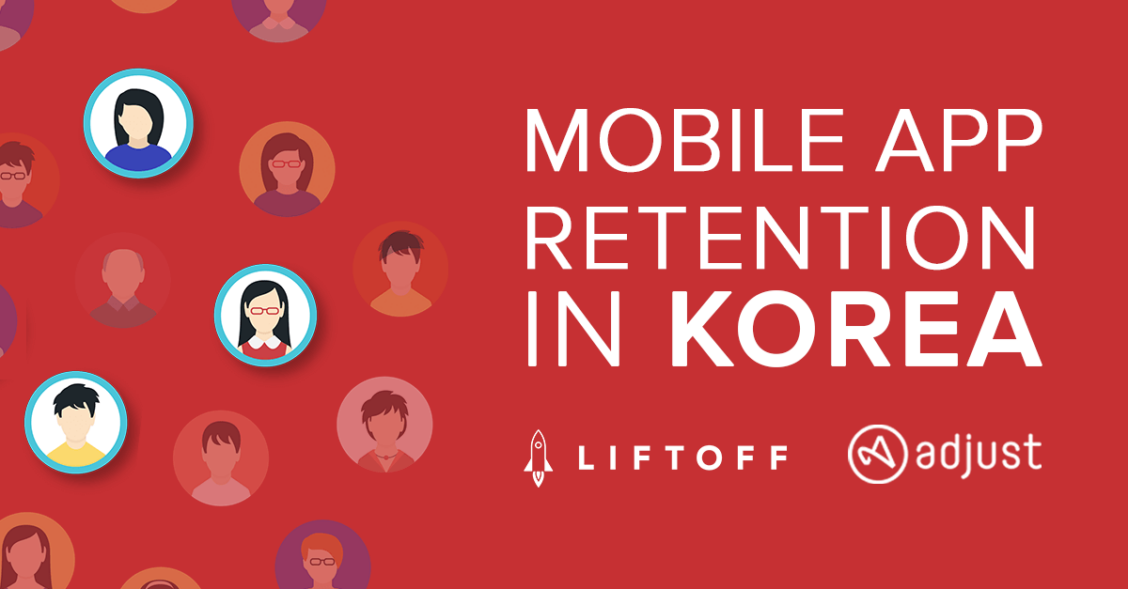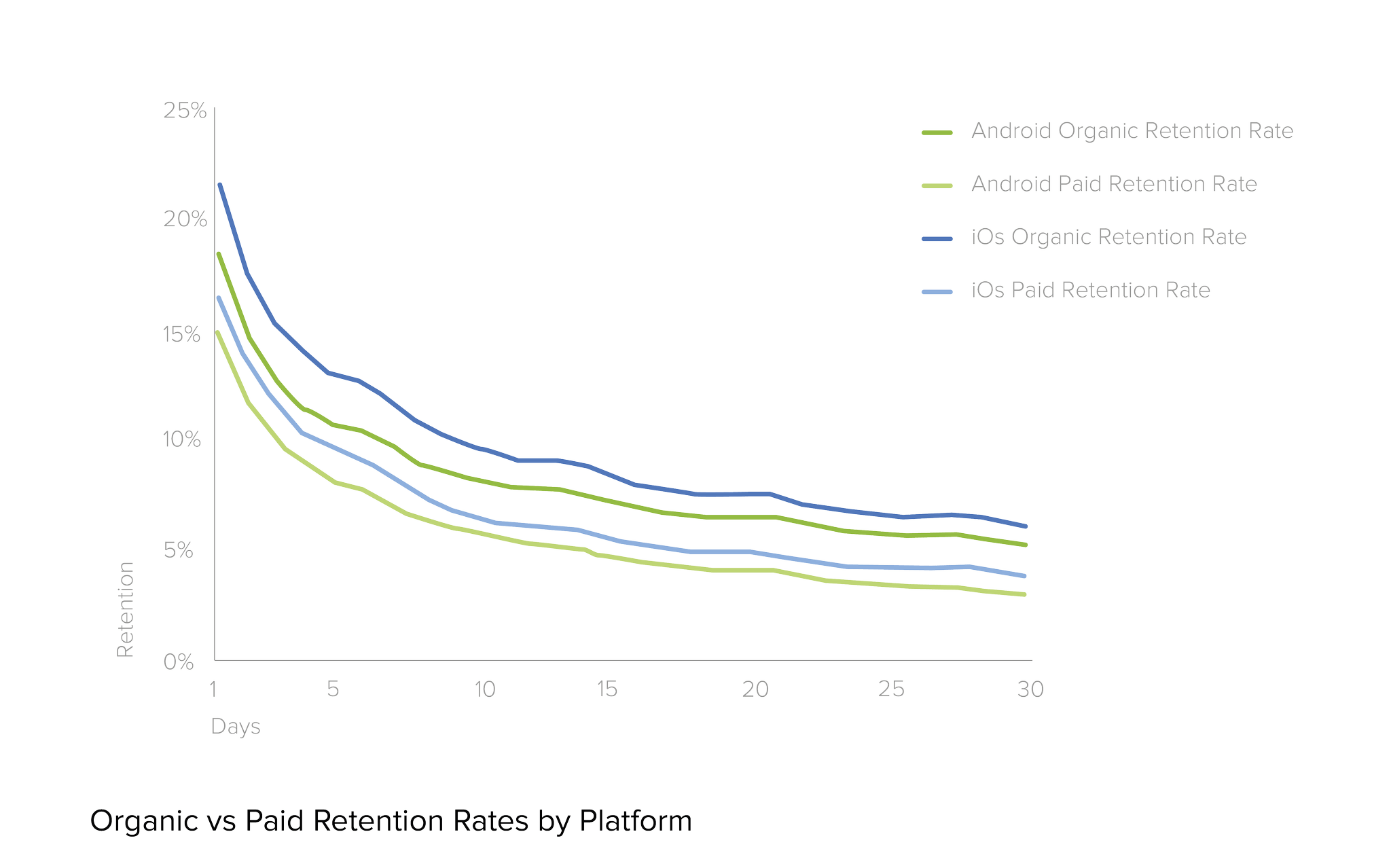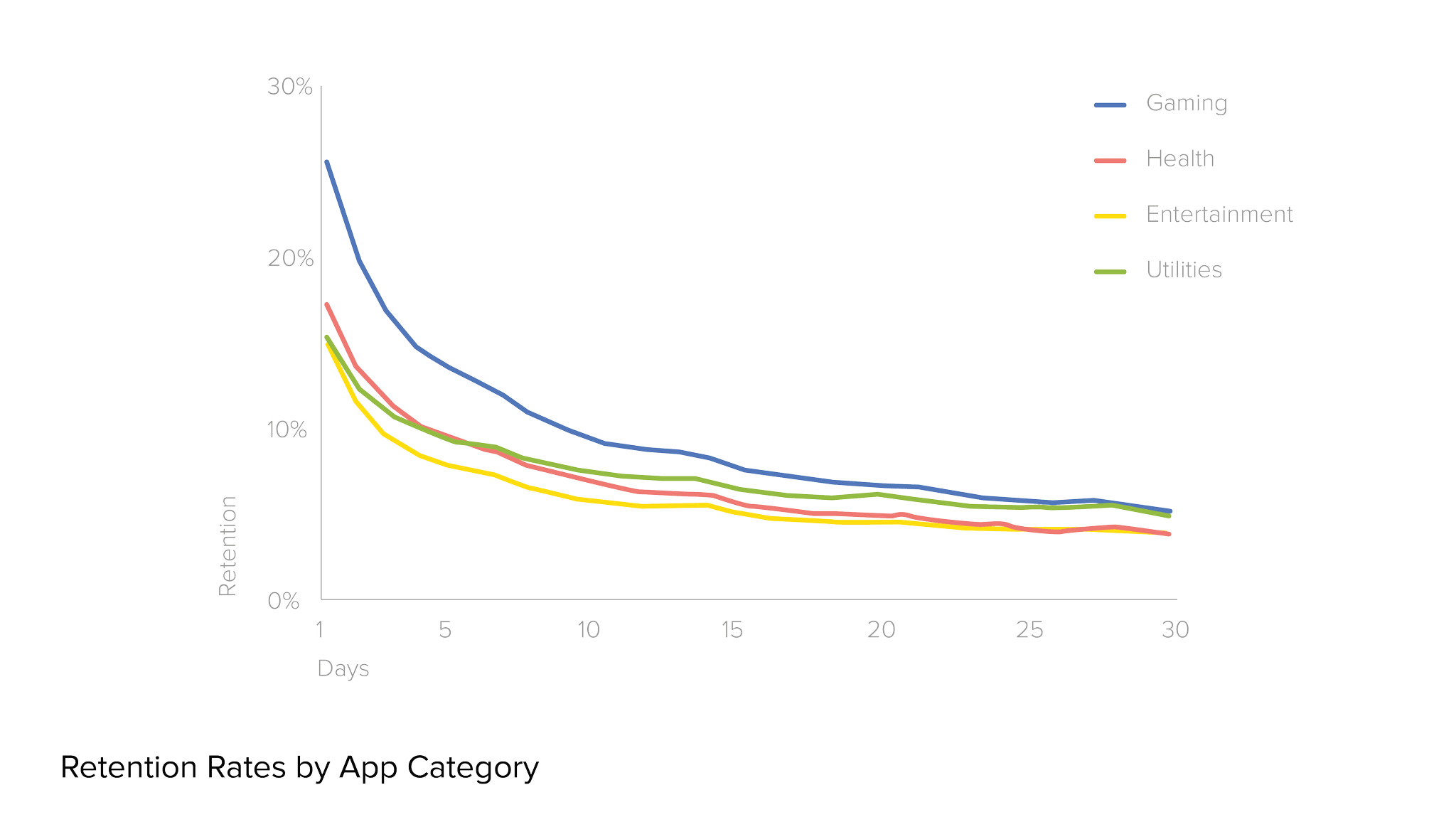
Mobile App Retention in Korea
Research Presented by Liftoff and Adjust
As one of the most fully saturated and attractive app markets in the world, South Korea is perhaps most distinctive among developed economies in its relative convergence between Android and iOS usage behaviors. Yet with over 46 million registered smartphones as of 2016, 71% of which are running Android, the Google-owned platform is more dominant in Korea than any other developed country, including Japan, where Android users make up just 32.21% of all mobile users. This can, of course, be attributable to the relative dominance of Samsung in the country, with Samsung devices taking up the top 3 spots in terms of device market share.
Mobile App Usage: Sessions and Events
Though Android phones dominate the Korean market, interesting findings surface when comparing mobile app sessions and events within the first month of installing an app. A session is defined by a period of time in which a user interacts with an app.
It turns out that Android and iOS users are comparatively similar in terms of app engagement, posting an average of just under two app sessions per user per day over the first 30 days across all app categories (Android 1.96, iOS 1.92). This is a dramatic difference when compared with Japan, as highlighted in our Japan Mobile App Engagement Report, where Android users log 31% more sessions than iOS users.
The story is different when analyzing events (in-app actions performed by users like completing level one in a game, making a purchase, or clicking a link). When comparing engagement in in-app events, Android users log just 19% more events per user per day than iOS users in the first thirty days.
30-Day Retention: Organic vs Paid by Platform
Of particular significance to app marketers is that, while Android users engage with the apps they download, iOS users consistently outperform Android users on the key metric of 30-day retention, by an even wider margin than we see in Japan.
21.5% of iOS users who installed an app after being served an ad (paid retention) continued to use the app after Day 1, compared to just 14.9% of paid Android users. 30 days later, paid iOS users continued to outperform Android users with a 3.8% retention rate vs 3.0% for Android, a difference of 26.7%.
We see a similar pattern when examining the 30 day retention rate of organic users. Of iOS users who installed an app without clicking on a paid ad, 21.5% continued using the app after the first day compared to 18.5% of Android users. And 30 days later 6.1% of iOS users continued using the app vs 5.3% of Android users, a 15% difference.
Organic vs Paid Retention Rates by Platform
While these retention numbers are lower than we see in Japan (a market which tends to have the most loyal users in the world), organic users of iOS do consistently outperform organic Android users. Also noteworthy is that when compared to Japan, organic Korea users consistently outperform paid users. In Japan, there is no meaningful retention gap between paid or organic users.

30-Day Retention Rates by App Category
Similar to dynamics in the Japanese market, Gaming apps do well in Korea, boasting high Day 1 (25.7%) and Day 30 (5.1%) retention rates. In contrast, Entertainment apps are relative underperformers in Korea, with 14.9% of users continuing to use Entertainment apps after the first day of install, then dropping to 3.75% on Day 30. Utility apps demonstrate a gradual decline in usage over 30 days, decreasing 68% from Day 1 to Day 30. This compares with the relatively steep 77.2% decline in usage of Health apps, from 17.35% on Day 1 to just 3.79% on Day 30.
Retention Rates by App Category

| App Category | ||||
|---|---|---|---|---|
| Day | Gaming | Health | Entertainment | Utility |
| 1 | 25.70% | 17.35% | 14.90% | 15.39% |
| 10 | 9.47% | 6.77% | 5.77% | 7.40% |
| 20 | 6.75% | 4.89% | 4.59% | 6.06% |
| 30 | 5.09% | 3.79% | 3.75% | 4.96% |
South Korea is unquestionably a very sizeable and attractive market for mobile apps. Underscoring this appeal is a 2016 Pew Research Center report revealing that approximately 88% of households in South Korea own at least one smart device, the highest smartphone penetration rate of all countries in the world. This translates into high app engagement, particularly in the area of Gaming.
However, app publishers looking to succeed in this large market will need to devote adequate time and resources to both Android and iOS platforms. While the Korean market has more than twice as many Android users as iPhone owners, iOS users tend to display greater app loyalty, outperforming their Android counterparts in the key metric of app retention.
The data presented here draws from Liftoff and Adjust data from Aug 1, 2017 to July 31, 2018.
Read this research in Korean.